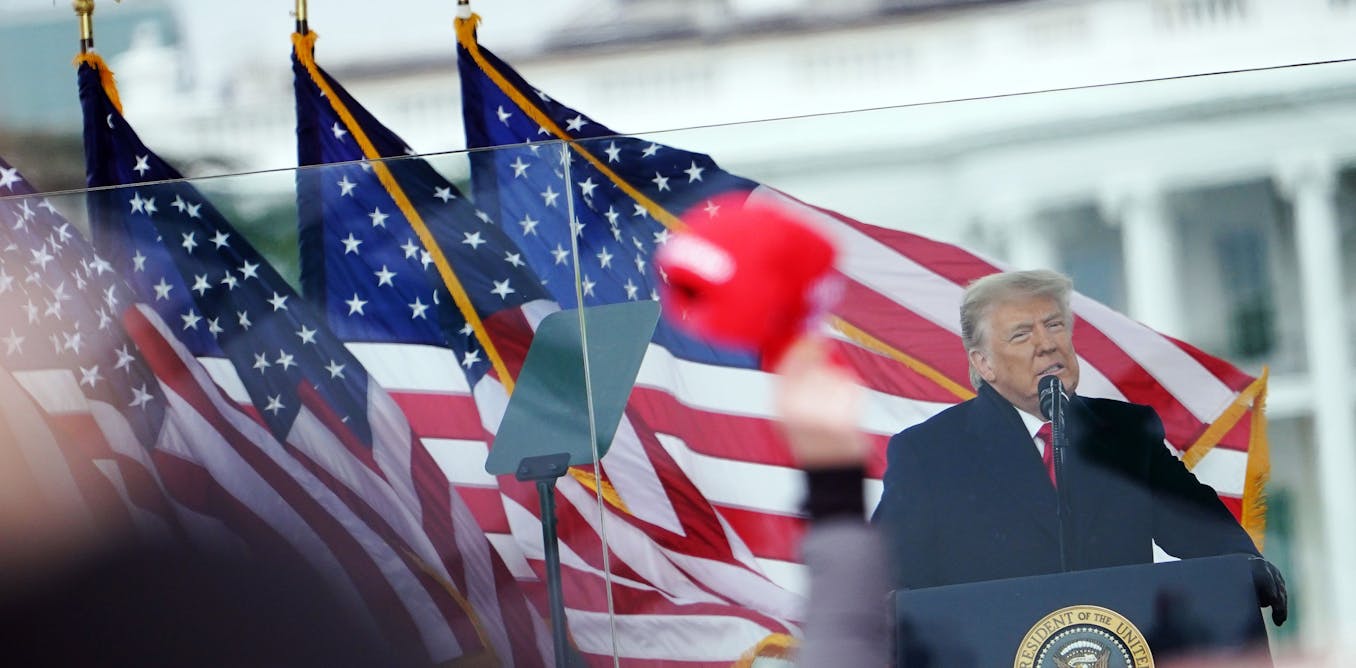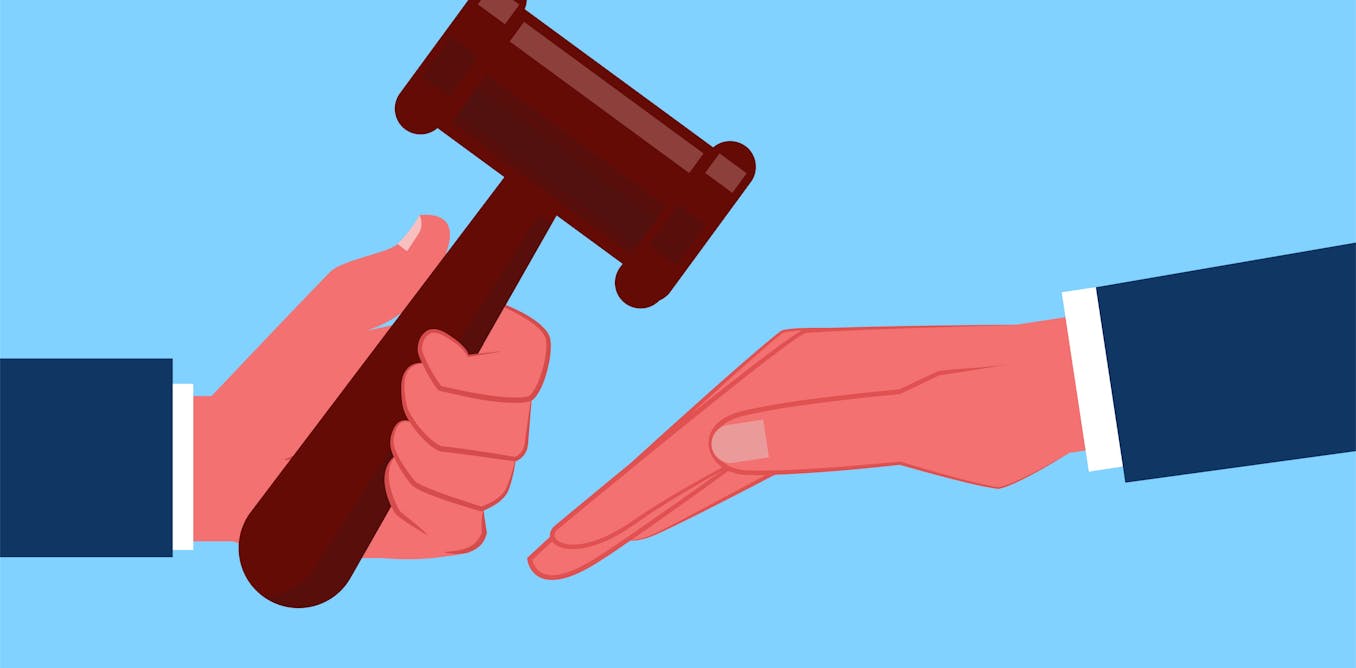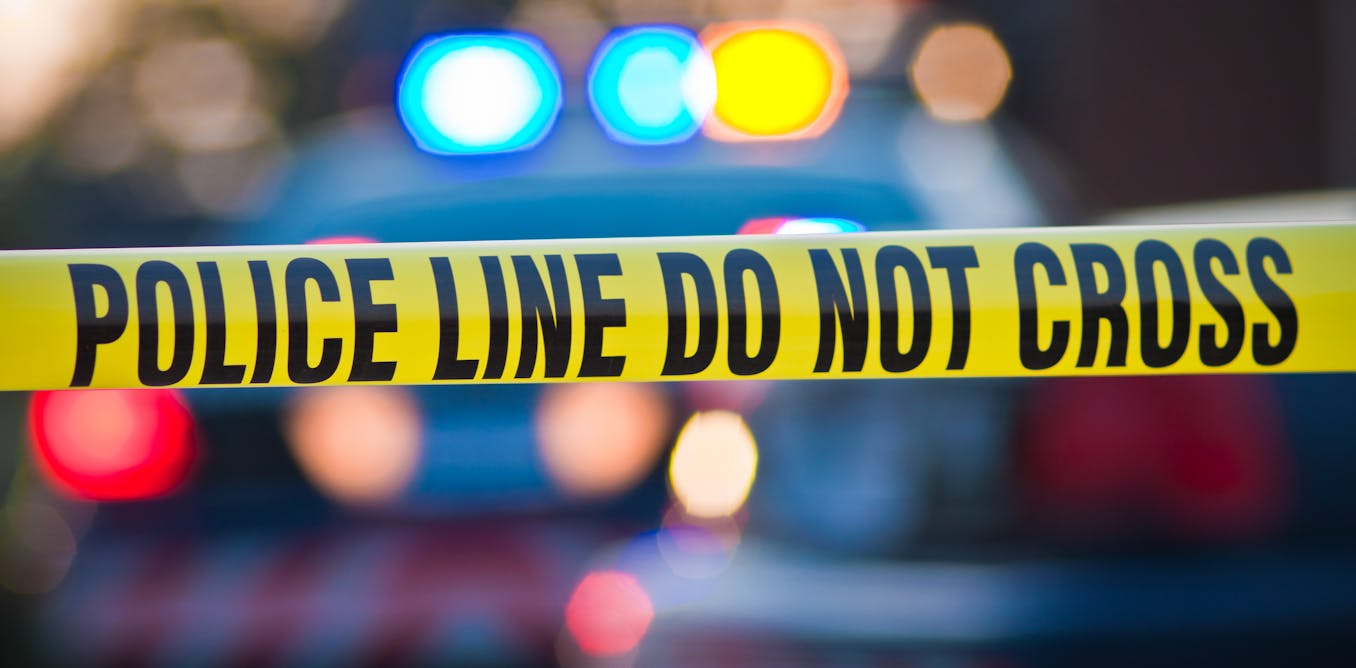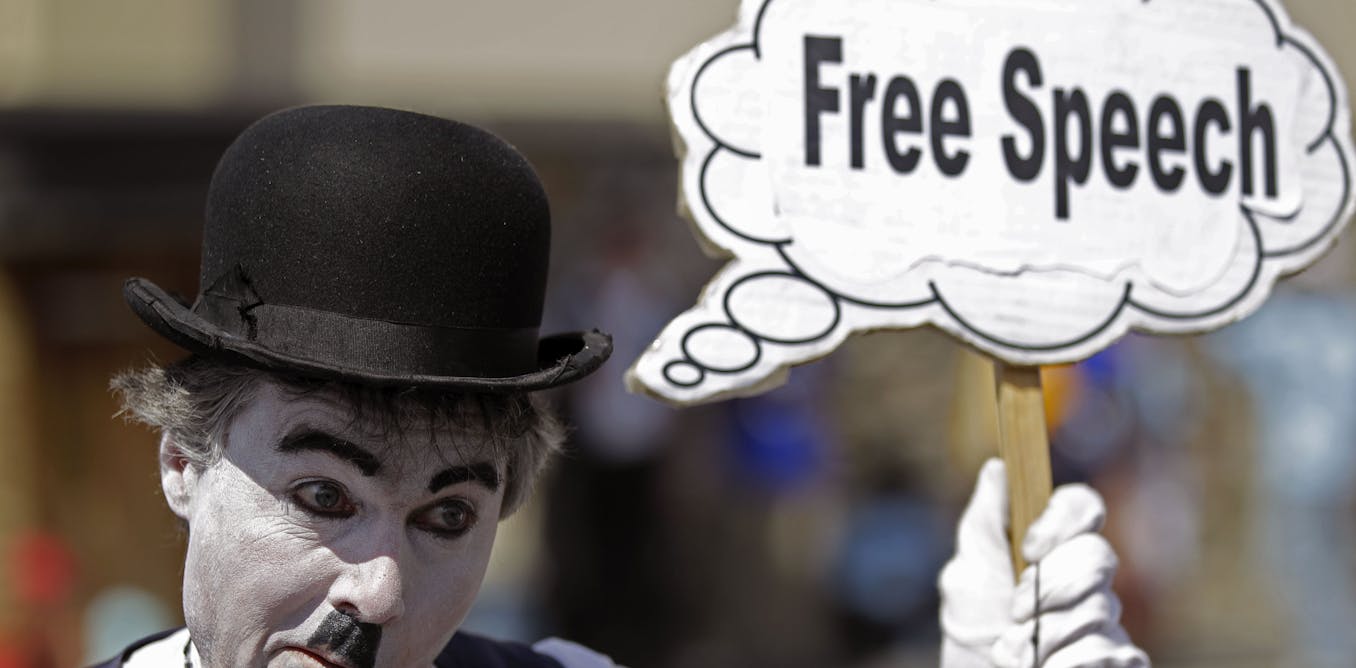The U.S. Supreme Court docket has dominated that a president, such as former President Donald Trump, “may not be prosecuted for working out his core constitutional powers, and he is entitled, at a bare minimum, to a presumptive immunity from prosecution for all his formal functions.”
The conclusion is “super nuanced,” as a legislation scholar described to The Discussion shortly right after the determination was introduced on July 1, 2024.
Whilst a president has complete immunity for training “core constitutional powers,” a sitting or previous president also has “presumptive immunity” for all official functions. That immunity, wrote Chief Justice John Roberts in the the greater part opinion, “extends to the outer perimeter of the President’s formal duties, covering steps so extended as they are not manifestly or palpably over and above his authority.”
“There is no immunity for unofficial functions,” the court dominated.
The vote was 6-3, as the court’s a few liberal justices – Elena Kagan, Sonia Sotomayor and Ketanji Brown Jackson – strongly disagreed with the the vast majority feeling in a dissent.
“Today’s selection to grant former Presidents criminal immunity reshapes the establishment of the Presidency. It can make a mockery of the theory, foundational to our Structure and system of Government, that no person is earlier mentioned the legislation,” Sotomayor wrote in the dissenting viewpoint.
The federal prosecution towards Trump for his steps to overturn the 2020 presidential election will now go again to lower courts to ascertain which of the federal costs against Trump can commence. A single final result, while, is apparent – this final decision will have a big effects on presidential electrical power and the separation of powers in authorities.
Until eventually all of the decision’s nuances are parsed by constitutional regulation students, listed here are 4 stories to enable viewers much better have an understanding of the arguments top up to the choice and what was at stake with this circumstance.
Drew Angerer/AFP by means of Getty Photographs
1. Laying the groundwork
Trump claimed he is immune from federal prosecution for his initiatives to overturn the 2020 presidential election simply because he was in office environment as president at the time.
“Trump’s argument centered on a declare … that a president simply cannot be subjected to legal motion for formal carry out or steps taken as section of the work,” wrote Claire B. Wofford, a political science scholar at the Faculty of Charleston.
Given that 1982, in a scenario relationship back again to Richard Nixon’s presidency, presidents have been considered immune from civil lawsuits primarily based on their officers acts, Wofford spelled out, and Trump sought to grow that immunity protection. But it was a massive talk to, Wofford wrote:
“Protecting the president from the hassles of civil litigation is a person detail allowing the president, charged in Write-up 2 of the Constitution with trustworthy execution of the legislation, to be able to break these identical laws with impunity is rather one more.”
Without a doubt, U.S. District Court Choose Tanya Chutkan wrote in December 2023 that Trump did not have the “divine ideal of kings to evade felony accountability.” And a federal appeals court agreed in February 2024. That’s the ruling Trump appealed to the Supreme Courtroom.
Study extra:
Trump was not king and can be prosecuted for crimes dedicated whilst president: Appeals court locations limitations on immunity
2. An inconsistent assert
Trump’s declare confronted an uphill battle. Stefanie Lindquist, a scholar of constitutional legislation at Arizona Point out College, noticed:
“In several of the lawsuits he submitted tough election effects in the wake of the 2020 election, Trump himself stated he was acting ‘in his individual potential as a candidate,’ as distinct from his formal potential as president.
“Now, however, Trump promises that no matter whether or not he was performing as a prospect on Jan. 6, his comments on ‘matters of general public concern’ drop inside the scope of his presidential obligations.”
That inconsistency, as effectively as the basic theory in the Constitution that no human being could be above the regulation, built Trump’s posture a difficult one to argue.
Study additional:
Trump statements Structure gives him immunity − this is why judges and the Supreme Court might not concur
3. A choice a lengthy time coming
Wofford, a constitutional legislation scholar at the College of Charleston, noticed before the Supreme Court’s July ruling that there was community problem about the time it took the courtroom to arrive at a choice, but she mentioned that hold off was a great deal far more likely in assistance of democracy than it was a partisan participate in:
“When the Supreme Court docket makes a selection, it is inevitably answering a incredibly tough lawful question. If the answers were very clear, the case under no circumstances would have been the subject matter of large court litigation in the initially position.”
And the endeavor the justices have in deciding the situation is crucial to the country, she wrote:
“(G)iven the potentially unconstitutional steps Trump has threatened to take if re-elected, the region will require a strong and properly-respected Supreme Courtroom in the really in close proximity to foreseeable future. Those people indignant with the courtroom really should really be extremely happy it is working as normal in this article. If it weren’t, their fear that Trump will get absent with it all may well in fact be recognized.”
Study more:
Supreme Court’s slow roll on selecting Trump’s immunity is the reverse of politics
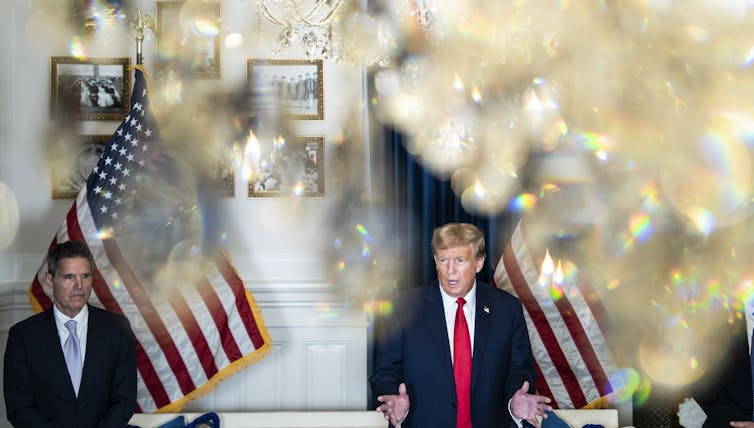
Jabin Botsford/The Washington Article by way of Getty Photos
4. What this suggests for the long term
Before this spring, Wofford famous some disturbing portents in the course of the oral arguments just before the Supreme Court on April 25, 2024:
“Several of the justices, across the ideological spectrum, have been extremely concerned about the useful implications of enabling a president to have immunity to some extent, or not enabling the president to have immunity.”
For occasion, Wofford mentioned,
“Justice Samuel Alito seemed actually concerned about the president becoming topic to political prosecution if he had been not shielded by immunity. … On the flip side … (Justice Ketanji Brown Jackson) reported a president could enter place of work ‘knowing that there would be no opportunity penalty for committing crimes.’”
Wofford expected the justices would attempt to stay away from granting both total immunity or no immunity at all – and as a result enable Trump’s federal trial for making an attempt to overturn the 2020 presidential election to go on based on the simple fact that a lot of of his actions have been personal, not official. Although that held peril, much too, Wofford wrote:
“I would like there were a distinctive car or truck via which the courtroom could take care of this dilemma and that it did not sense to so a lot of people that the destiny of our authorities, and the security of our program, was on the line. … If it does not make a crystal clear, resounding assertion that the president is not higher than the legislation, then I imagine we have a severe dilemma.”
Read additional:
Trump’s immunity arguments at Supreme Court emphasize dangers − although prosecutors worry larger sized danger of eradicating authorized accountability
This tale is a roundup of articles or blog posts from The Conversation’s archives.

